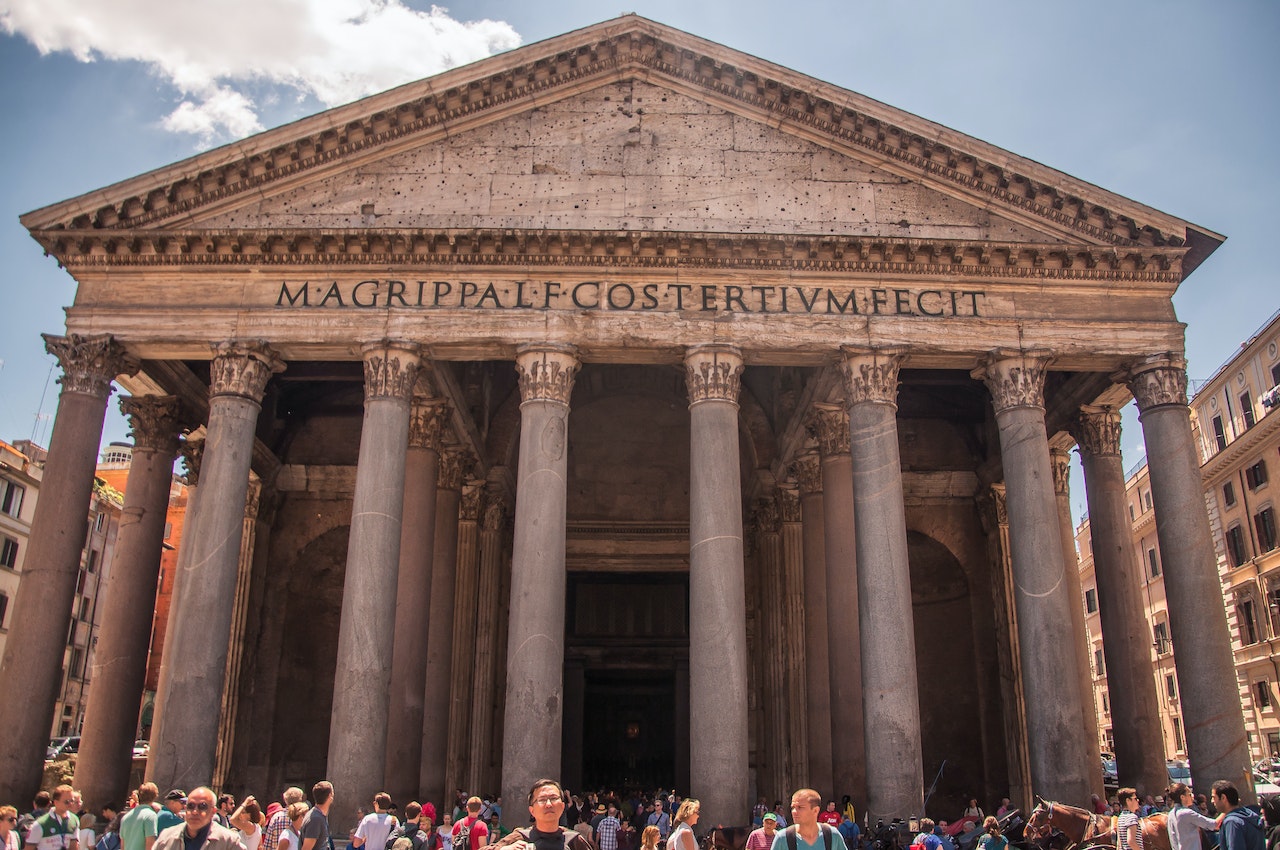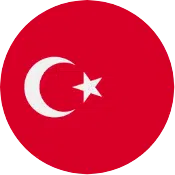
Adjectives in Italian: 50 You Should Know
Adjectives are essential building blocks of language. They allow us to vividly describe people, places, things, and emotions. We will find out the 50 commonly used adjectives in Italian. A complete list with meanings, pronunciations, and contextual examples. Let’s dive into the colourful world of descriptive words! Discover the 50 adjectives in Italian you should know.
1. Adjectives Describing Emotions
- Felice (Fe-lee-cheh) – Feeling of happiness.Example: I bambini erano felici di vedere l’arcobaleno dopo la pioggia. (The kids were happy to see the rainbow after the rain)
- Triste (Tree-steh) – Feeling of sadness. Example: La sua espressione era triste. (Her expression seemed sad)
- Arrabbiato (Ah-rahb-bee-ah-toh) – Angry. Example: Il conducente è stato arrabbiato per il traffico intenso (The driver was angry due to heavy traffic).
- Calmo (Kahl-mah-toh) – Calm. Example: Il parco era un luogo calmo e tranquillo (The park was a calm and peaceful place).
- Solo (So-loh) – Lonely. Example: Dopo il trasferimento in una nuova città, si sentiva solo senza amici (After moving to a new city, he felt lonely without friends).
- Malato (Mah-lah-toh) – Sick. Example: È stato costretto a rimanere a casa dal lavoro perché era malato (He had to stay home from work because he was sick).
- Educato (Eh-doo-kah-toh) – Polite. Example: Il cameriere è stato molto educato e ha offerto assistenza con un sorriso (The waiter was very polite and offered assistance with a smile).
- Intelligente (Een-teh-lee-yen-teh) – Intelligent. Example: La soluzione intelligente al problema ha sorpreso tutti (The intelligent solution to the problem surprised everyone).
- Onesto (Oh-nes-toh) – Honest. Example: La sua confessione onesta ha avuto un impatto positivo sulla situazione (His honest confession had a positive impact on the situation).
- Fastidioso/Antipatico (Fahs-tee-dee-oh-soh) – Annoying. Example: Il rumore costante del cantiere era fastidioso (The constant noise from the construction site was annoying).
2. Adjectives Describing Appearance
- Orgoglioso (Or-gohl-yoh-soh) – Proud. Example:I Il padre era orgoglioso mentre guardava il figlio esibirsi sul palco. (The proud parent watched their child perform on stage.)
- Piccolo (Pee-kohl-loh) – Small. Example: Il suo giardino era piccolo con tanti fiori colorati. (She had a small garden filled with colorful flowers.)
- Stretto (Streht-toh) – Narrow. Example: Il vicolo stretto conduceva a un cortile nascosto (The narrow alleyway led to a hidden courtyard).
- Basso (Bahs-soh) – Short. Example: L’uomo basso si alzò in punta di piedi per raggiungere lo scaffale (The short man stood on tiptoes to reach the shelf).
- Alto (Ahl-toh) – Tall. Example: Gli alberi alti fornivano ombra in una calda giornata estiva (The tall trees provided shade on a hot summer day).
- Bellissimo (Behl-lee-see-moh) – Beautiful. Example: Il tramonto sull’oceano era uno spettacolo bellissimo (The sunset over the ocean was a beautiful sight).
- Brutto (Broo-toh) – Ugly. Example: L’edificio abbandonato aveva un aspetto brutto e inquietante (The abandoned building had an ugly and eerie appearance).
- Gentile (Jen-tee-leh) – Kind. Example: Aveva un cuore gentile e aiutava sempre gli altri in difficoltà (She had a kind heart and always helped others in need).
- Spaventoso (Spah-ven-toh-soh) – Scary. Example: La casa infestata aveva un aspetto oscuro e spaventoso di notte (The haunted house looked dark and scary at night).
- Interessante (Een-teh-rehs-sahn-teh) – Interesting. Example: Il documentario sulla vita marina era sia informativo che interessante (The documentary on marine life was both informative and interesting).
3. Adjectives Describing Conditions
- Freddo (Frehd-doh) – Cold. Example: Si era avvolta in una coperta calda per ripararsi dal freddo. (She wrapped herself in a blanket to stay warm in the cold weather.
- Caldo (Kahl-doh) – Hot. Example: Il metallo era troppo caldo da toccare. (The metal was too hot to touch.)
- Facile (Fah-chee-leh) – Easy. Example: Cucinare la pasta è facile e veloce (Cooking pasta is easy and quick).
- Difficile (Dee-fee-chee-leh) – Difficult. Example: Risolvere problemi matematici complessi può essere difficile (Solving complex math problems can be difficult).
- Pulito (Poo-lee-toh) – Clean. Example: Ha pulito il tavolo finché non è diventato pulito (She wiped the table until it was clean).
- Sporco (Spor-koh) – Dirty. Example: Le scarpe fangose hanno lasciato impronte sporche sul pavimento (The muddy shoes left dirty footprints on the floor).
- Buono (Boo-oh-noh) – Good. Example: Il film ha ricevuto buone recensioni dai critici (The movie received good reviews from critics).
- Cattivo (Kaht-tee-voh) – Bad. Example: Il tempo tempestoso ha reso cattiva l’idea di andare in spiaggia (The stormy weather made for a bad day to go to the beach).
- Ricco (Reek-koh) – Rich. Example: Il ristorante offriva un dessert ricco e saporito (The restaurant offered a rich and flavorful dessert).
- Povero (Poh-veh-roh) – Poor. Example: La famiglia povera aveva difficoltà a far quadrare i conti (The poor family struggled to make ends meet).
Sign up for our offers
Exclusive discounts on your course with Cactus directly on your inbox!
4. Adjectives Describing Quantity and Size
- Grande (Grahn-deh) – Big. Example: L’elefante era grande ma camminava gentilmente tra la giungla. (The big elephant walked gracefully through the jungle.)
- Piccolo (Pee-kohl-loh) – Small. Example: Lei aveva una borsa piccola con le cose essenziali. (She carried a small bag with her essentials.)
- Basso (Bahs-soh) – Low. Example: L’aereo volava a bassa quota (The airplane flew at a low altitude).
- Alto (Ahl-toh) – High. Example: Il grattacielo aveva un osservatorio in alto (The skyscraper had a high observation deck).
- Vicino (Vee-chee-noh) – Near. Example: Il parco è vicino alla nostra casa, quindi ci andiamo spesso (The park is near our house, so we walk there often).
- Lontano (Lohn-tah-noh) – Far. Example: Le montagne sono lontane dalla città (The mountains are far from the city).
- Vuoto (Voo-oh-toh) – Empty. Example: La stanza era vuota dopo che gli ospiti se ne sono andati (The room was empty after the guests left).
- Pieno (Pee-eh-noh) – Full. Example: Il barattolo era pieno di caramelle colorate (The jar was full of colorful candies).
- Lungo (Loon-goh) – Long. Example: Il lungo ponte attraversava il fiume (The long bridge spanned the river).
- Corto (Kor-toh) – Short. Example: L’escursione alla cima era stata breve ma ripida (The hike to the summit was short but steep)

5. Adjectives Describing Weather and Nature
- Soleggiato (So-lehd-jah-toh) – Sunny. Example: Ci siamo divertiti in un giorno soleggiato in spiaggia. (We enjoyed a sunny day at the beach.)
- Piovoso (Pee-oh-voh-soh) – Rainy. Example: Non ti scordare l’ombrello, sará piovoso oggi. (Don’t forget your umbrella, it’s going to be rainy today.)
- Ventoso (Vehn-toh-soh) – Windy. Example: Il tempo era cosi ventoso che era divertente far volare l’aquilone (The windy weather made flying a kite a fun activity.)
- Nuvoloso (Noo-voh-loh-soh) – Cloudy. Example: Il cielo era troppo nuvoloso e abbiamo deciso di posticipare il picnic. (The picnic was postponed due to the cloudy forecast.)
- Umido (Oo-mee-dee-tah) – Humid. Example: era cosi umido che I vestiiti non si asciugavano all’aperto. (It was so humid, my clothes were not drying outside)
- Secco (Sehk-koh) – Dry. Example: Il deserto é conosciuto per il suo clima caldo e secco. (The desert is known for its hot and dry conditions.)
- Tempestoso (Tehm-pehs-toh-soh) – Stormy. Example: La notte tempestosa ci tenne svegli con tuoni fortissimi. (The stormy night kept us awake with loud thunder.)
- Mite (Mee-teh) – Mild. Example: L’ inverno era cosi mite che potevamo fare attivitá fuori. (The mild winter allowed for outdoor activities.)
- Freddo (Frehd-doh) – Cold. Example: Faceva troppo freddo ieri notte (It was extremely cold last night)
- Caldo (Kahl-doh) – Hot. Example: Faceva cosi caldo in quell giorno d’estate che la spiaggia era piena di gente (The beach was crowded on the hot summer day)
Adjectives in Italian
Congratulazioni! Now you know 50 essential adjectives in Italian that will enhance your ability to describe in this language. Learning Italian adjectives is only the beginning of your language adventure. By incorporating these adjectives into your vocabulary, you will be better equipped. Consider the following ways to improve your vocabulary and language skills:
- Immerse yourself: watch Netflix episodes in the original language. Add subtitles to enhance your hearing and understanding.
- Dive into resources: look at books like “2500 Most Frequently Used Italian Words” to improve your word bank.
- Connect with other Italian language learners: join language group lessons. Learn with professional teachers. Or, go on a language holiday to Italy. Connect with its culture, and watch your language skills flourish.
Next Steps to Learn Italian
Starting your language learning journey can be somewhat daunting. But starting with short and simple adjectives is a great way for you to start. The best next step is joining a language course to get you moving. The help of other students and tutors will make it much easier.
Why not start learning Italian with our Italian courses. Or one of our Italian courses abroad. Cactus offer a range of Italian courses suitable for all levels, from beginners to advanced. With weekly lessons, you can choose the best option for you.

 French
French German
German Italian
Italian Spanish
Spanish Arabic
Arabic Cantonese
Cantonese Czech
Czech Croatian
Croatian Danish
Danish Dutch
Dutch English
English Greek
Greek Hebrew
Hebrew Hindi
Hindi Japanese
Japanese Korean
Korean Norwegian
Norwegian Polish
Polish Portuguese
Portuguese Russian
Russian Swedish
Swedish Thai
Thai Turkish
Turkish Ukrainian
Ukrainian